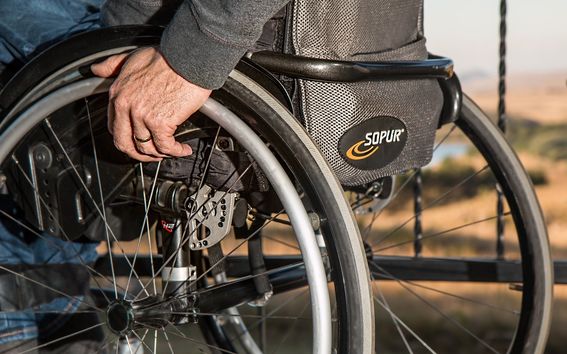Research project assesses accessibility legislation and policy needs in the built environment

The Finnish Prime Minister’s Office has commissioned a study on the status and needs of accessibility legislation in Finland.
Finland ratified the UN Convention on the Rights of Persons with Disabilities in 2016.
The agreement mandates non-discrimination and defines accessibility from a human rights perspective as a prerequisite for independent life of a disabled person. The UN treaty mandates signatories to develop and enforce minimum accessibility standards to provide equal access to all built outdoor areas and buildings.
The Finnish Government Decree on Accessibility of Buildings which was enacted in the beginning of 2018, forms part of the national implementation of the UN Convention and sets a baseline of minimum standards. The decree clarifies accessibility requirements for land use, building sites and construction. There is, however, no regulation specifying accessibility of public outdoor areas. More information is therefore needed to determine the accessibility legislation and policy needs in order to meet the obligations of the UN Convention.
There is also no overall status reporting or data collection of the state of accessibility of the built environment in Finland. Some studies have been carried out on accessibility of residential building stock, but there is no comprehensive information on for example accessibility of public spaces or amenities.
The study reviews existing legislation on accessibility in the built environment from the perspective of the obligations of the UN Convention on the Rights of Persons with Disabilities. In addition, it includes a review of the current state of accessibility of the built environment in Finland through statistics, surveys and a subject matter expert panel. To document and review international best practices the study also includes a comparison of select accessibility practices in the Nordic countries, Canada and select central European countries. The international scan is carried out by the Inclusive Design Research Center at OCADU, Toronto.
The project started in March, and the results will be published in November 2021. The principal investigator is Professor Laura Arpiainen from Aalto University's Sotera research group. The team also includes accessibility specialist Satu Wäre-Åkerblom from Helsinki and Dr. Vera Roberts from OCAD University's Inclusive Design Research Center in Toronto.
Contacts:
Laura Arpiainen, Professor, Aalto University, laura.arpiainen@aalto.fi
Satu Wäre-Åkerblom, Accessibility specialist, Åkerblom Architects, satu.wareakerblom@gmail.com
Niina Kilpelä, Senior Architect, Ministry of the Environment, niina.kilpela@ym.fi
Read more news

Apply Now: Unite! Visiting Professorships at TU Graz
TU Graz, Austria, invites experienced postdoctoral researchers to apply for two fully funded visiting professorships. The deadline for expressions of interest is 20 February 2026, and the positions will begin on 1 October 2026.
Hanaholmen’s 50th anniversary exhibition lives on online – making the history of Finnish–Swedish cooperation accessible worldwide
MeMo Institute at Aalto University has produced a virtual 3D version of the anniversary exhibition of Hanaholmen.
Environmental Structure of the Year 2025 Award goes to Kalasatama-Pasila tramway
The award is given in recognition of meritorious design and implementation of the built environment. Experts from Aalto University developed sustainability solutions for the project.






